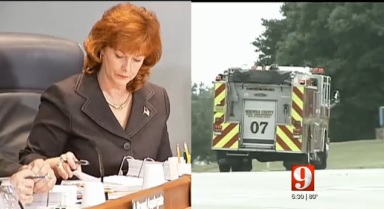Radio traffic from DC Metro Red Line train derailment
Looking for a quality used fire truck? Selling one? Visit our sponsor Command Fire Apparatus
Previous coverage of Metro subway problems
Courtesy of OpenMHZ, here are radio transmissions from the DC Fire & EMS Department during yesterday’s (Monday) Metro Red Line train derailment. It’s in two parts and appears to be fairly complete. While there were no injuries, more than 60 passengers remained stranded for almost one hour and 45 minutes as DC firefighters worked with Metro on the safest way to evacuate the train.
According to the logging of the audio files on OpenMHZ, the initial dispatch was at 6:40:55 a.m. News reports don’t indicate what time the derailment occurred, but Metro officials say it was around 6:30 a.m.
In a large number of previous Metro derailments, crashes, fires and other incidents there is a well documented history, over many decades, of delayed dispatches caused by both Metro’s Rail Operations Control Center (ROCC) and DC’s Office of Unified Communications (OUC – 911 Center). There’s no indication, at this point, that was the case yesterday. But there’s also, so far, no official accounting of the 11 or so minutes lost or confirmation of the key times.
It’s apparent from these radio transmissions and a partial recording from Metro’s radio system (below) that the initial report was for smoke in the tunnel. It wasn’t learned until many minutes later that a derailment had occurred. Part of the problem was Metro appears to have immediately lost communications with the derailed train. Unlike some previous incidents, DC Fire & EMS seemed to have little or no difficulty with its radio transmissions.
Photos from derailment. #wmata pic.twitter.com/32lCVealVO
— ???????????????????????? ???????? ???????????????????? (@unsuckdcmetro) January 15, 2018
All the images from in the tunnel are from Alan Devlin and relayed by Lisa Devlin.
From listening to the radio traffic, it’s clear that the fire department liaison officer assigned to ROCC (located in neighboring Prince George’s County) continues to play a key role in communications during emergency incidents on the subway system. At the urging of area fire chiefs, lead by former PGFD Chief Marc Bashoor, that position is filled around the clock. It’s money well spent.
BREAK: @nbcwashington obtains audio of Metro derailment along the Red Line. Listen as officials describe smoke and “loose rail” #wmata pic.twitter.com/qaVCM75tSS
— Adam Tuss (@AdamTuss) January 15, 2018
Yesterday’s derailment occurred three years and three days after the January 12, 2015 fire that took the life of passenger Carol Glover. That incident brought great scrutiny to Metro’s many safety issues and poor policies at ROCC and DC’s OUC. ROCC sent the train Carol Glover was on and a second train towards danger despite being alerted to trouble by smoke alarms and tripping breakers.
In that incident, ROCC waited almost 18 minutes before requesting fire and EMS to respond. OUC then delayed the response further by failing to quickly dispatch the proper assignment. All of these issues and other findings by the National Transportation Safety Board have similarities to many other critical incidents going back to the early years of the subway system.






